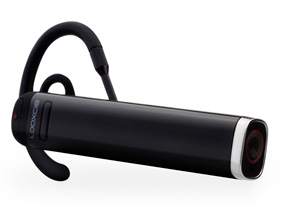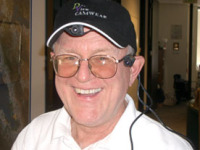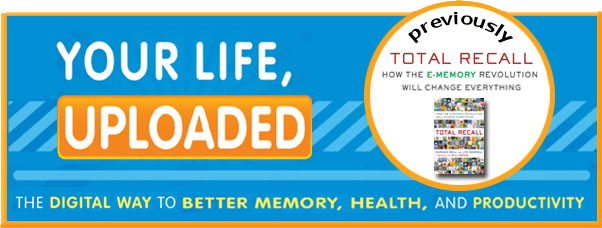Looxcie continuous loop camera in bluetooth headset
 Tuesday, June 28, 2011 at 4:55PM
Tuesday, June 28, 2011 at 4:55PM Looxcie makes a POV video camera  built in to a bluetooth headset. It continously records video in a loop (up to 10 hours long), and you can press a button to save the past 30 seconds of video. You also use their smartphone or PC apps to select a section of video from the buffer. The continuous loop approach has the advantage that you don't have to predict a special moment is coming and get out the camera in time; instead, you just click the button after the fact.
built in to a bluetooth headset. It continously records video in a loop (up to 10 hours long), and you can press a button to save the past 30 seconds of video. You also use their smartphone or PC apps to select a section of video from the buffer. The continuous loop approach has the advantage that you don't have to predict a special moment is coming and get out the camera in time; instead, you just click the button after the fact.
This is a lot like the old Deja View - but without the cigarette-pack sized device and the wires. Very cool!!
Here's Gordon wearing the Deja View:

Hat tip to Clive Thompson
 Camera,
Camera,  video in
video in  Getting Started
Getting Started 